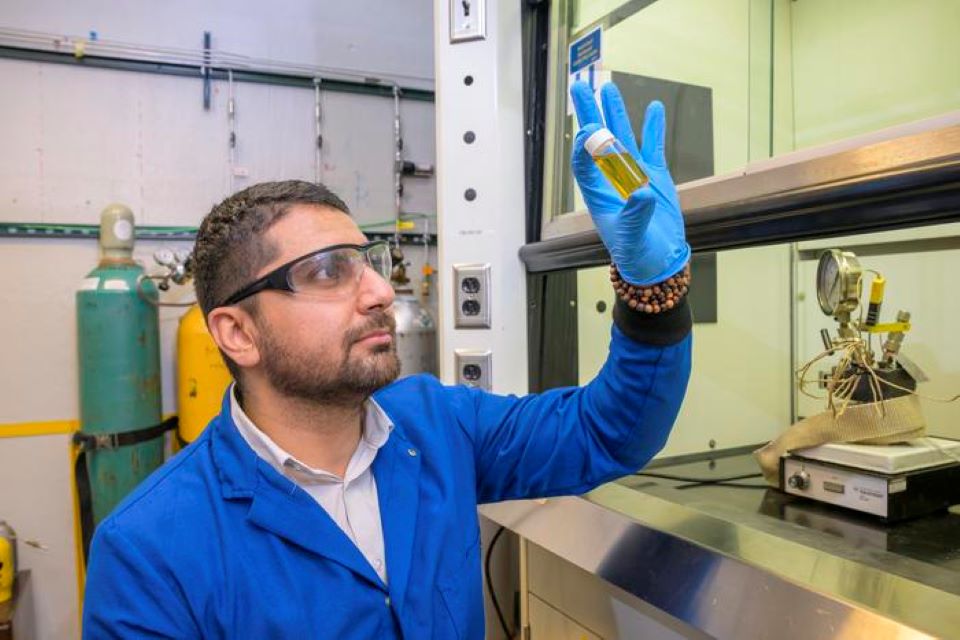The pilot-stage work by a University of Delaware-led research team helps pave the way toward energy-efficient methods for plastic upcycling, reducing plastic pollution and promoting sustainable fuel production. Their work is detailed in Chem Catalysis.
“Instead of letting plastics pile up as waste, upcycling treats them like solid fuels that can be transformed into useful liquid fuels and chemicals, offering a faster, more efficient and environmentally friendly solution,” said senior author Dongxia Liu, the Robert K. Grasseli Professor of Chemical and Biomolecular Engineering at UD’s College of Engineering.
One promising upcycling approach is hydrogenolysis, which uses hydrogen gas and a catalyst to convert the polymers in plastics into liquid fuels for transportation and industrial use.
However, conventional catalysts have limited efficiency because bulky polymer molecules have difficulty interacting with the active sites of the catalyst where the reaction takes place.
To address this, the researchers transformed MXenes – atomically thin, two-dimensional materials made of transition metal carbides, nitrides, or carbonitrides – into mesoporous MXenes, a form with larger, more open pores that had not previously been used for plastic upcycling.
